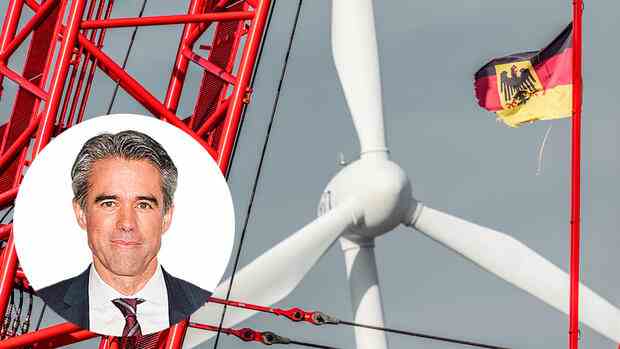In global rankings, our country regularly ranks among the top ten in terms of prosperity, sustainability and quality of life. But the foundation has been crumbling for years.
While Germany grew even faster than the USA between 2000 and 2010, the relationship has now reversed. In Asia, the consuming middle class could nearly double to 3.1 billion people by 2030, driving future growth.
Investments are leaving Germany – from traditionally strong sectors such as chemicals, but also from growth drivers such as IT and electronics. Across all industries, 425 billion euros less has been invested in Germany since 2010 than in the USA, taking into account the respective economic power. In addition, the US government’s most recent legislative packages – the Infrastructure Act, the Chips Act and the Inflation Reduction Act – are noticeably improving the investment climate in the USA.
The increased energy costs in this country reinforce the trend. Some industrial production areas have already become uneconomical and are being relocated abroad. Even if many companies – driven by global activities – report good results, Germany’s economic power is eroding.
In the global competition ranking of the business school IMD, Germany has fallen six places to 15th place in the past decade. And according to Thomson Financial Datastream, there were no German companies among the 100 largest global companies by market capitalization by mid-2022.
How can we strengthen Germany’s competitiveness again? We have to become more ambitious, faster and cooperate more with each other.
Ambitious: The current challenges provide momentum for fundamental changes: accelerating growth, transition to sustainability, expanding technological capabilities, strengthening resilience through further development of business models, effective use of ecosystems or restructuring of supply chains.
>> Also read: Worse than Portugal – family businesses find Germany increasingly unattractive
This requires courage to make uncomfortable and, above all, long-term decisions. Germany needs leaders who challenge their organization and can reconcile short-term crisis management with long-term performance goals.
Listed companies that fundamentally changed their business models during the financial crisis of 2008 were able to increase their total shareholder return in the following ten years By 225 percent, companies that only developed incrementally, by only 66 percent.
Business and politics must define a master plan for sustainability and growth goals
More quickly: In the Corona years, many companies and politicians proved that a crisis can be an adrenaline rush for change. It was often decided and implemented faster than we thought possible.
We also need speed now, for example with the energy transition. In order to meet the increasing demand for electricity and to achieve the federal government’s expansion targets for renewables, the expansion rate of onshore wind farms must, for example, double by 2030 and that of solar systems must quadruple.
On average, it currently takes seven years for onshore wind turbines to produce electricity – five for approval and two for construction. Why not in three years? Faster pace of economic decisions and approval procedures in Germany is an important factor on the road to success.
Together: A close alliance within the economy along the value chain and between business and politics is necessary – also through new and more intensive forms of cooperation.
There are enough topics for this: conversion of our energy system to a future portfolio with 80 percent renewables by 2030, sustainability transformation of all sectors and value chains, expansion of electromobility, modernization of our logistics and digital infrastructure, digitization of the healthcare system, development of new segments such as battery technology and cleantech as well as Strengthening of future technologies such as semiconductors, AI, robotics or quantum.
What is required is a master plan that defines the path to sustainability or growth goals step by step and measurably – coordinated between business and politics.
Whether we tackle these issues ambitiously and quickly or not determines our strategic competitiveness and can either shrink global economic output by eight percent or increase it by 15 percent by 2030.
My conclusion: short-term measures to solve current challenges are important and correct. But we can only strengthen the competitiveness of the location, preserve our environment and secure our prosperity for future generations through ambitious, fast and joint action in the public and private sectors with new and more intensive forms of cooperation.
The author: Fabian Billing is Managing Partner of McKinsey Germany and Austria.
More: That’s what economists say about the Chancellor’s vision.
